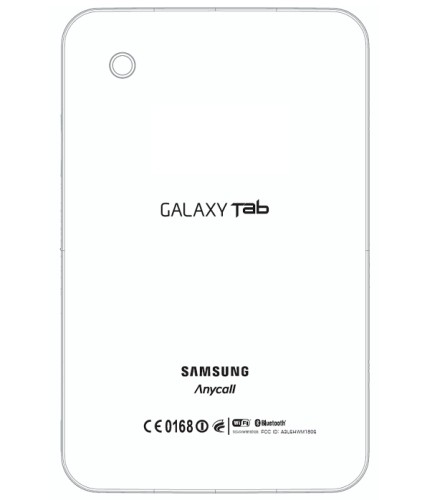
Samsung’s recent Galaxy devices may get some heat for their poor GPS reception, but the Galaxy Tab plans to make up for it with one of the most powerful WiFi receivers to be found in a device of its class. A recent FCC filing for the new Samsung tablet to be formally announced tomorrow at IFA reveal dual-band 802.11 a/b/g/n WiFi at 2.4GHz and 5.8GHz allowing throughput speeds of 150Mbps. This should give the Tab a bit of range to roam as pesky obstructions like walls will be easily penetrated by WiFi connectivity.
The filing also reveals a GSM 1900 radio, meaning that even if it doesn’t launch with the carrier AT&T’s network will be supported. This goes along with the CDMA version outed for Verizon and a quad-band GSM/HSDPA version that was spotted making its way through the GCF. Just like the Galaxy S phone, it seems there will be quite a few variants floating around (though we expect them to differ only in their cellular radios).
[via Engadget]


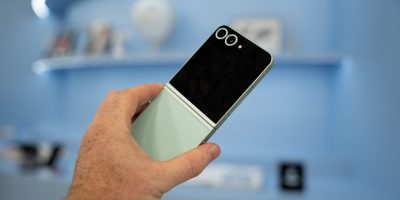
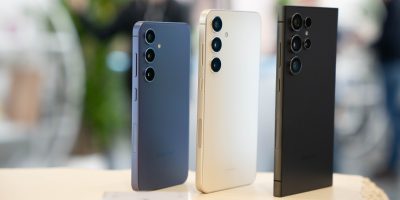
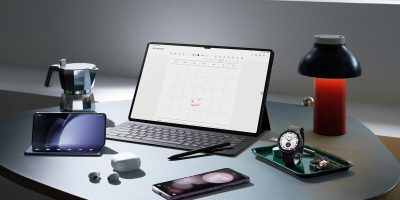

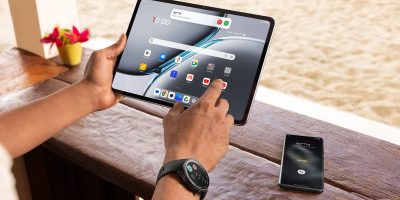




Still waiting for news of a WiFi-only version.
Presumably this is only useful if your router supports it? Or is it independent of that?
No 5.8GHz router, no 5.8GHz reception… yup. Thankfully my router does in fact support it. even if your router doesn’t support it, you might wander into a place with a router that does. Better compatibility = better device. Now I’m just hoping this thing lets you do no contract data on verizon like at&t does with the iPad. If that happens, I’m sold. Hell… I’ll get one for my wife as well.
More powerful than any device in its class? Bad description. Power in RF terminology refers to transmit power. Because this is a low power device (the tab) I would imagine it contains a rather low power radio. A better word would have been ‘advanced’ or ‘versatile’ or ‘compatible’.
This is an A/B/G/N radio, so it will support whatever router you’ve got. Of course, if you have a nicer router, you will get better connections (to the router).
A=5GHz – up to 54Mbps
B=2.4GHz – up to 11Mbps
G=2.4GHz or 5GHz – up to 54Mbps
N=2.4GHz and 5GHz – up to 150Mbps
Unless you have an internet connection greater than 11Mbps, internet surfing on your tab won’t be any better on N than it is on B. However, if you’re using your tab to view media on your home network, a faster (router) connection will be noticeable.
Damn I hope that everyone will be able to buy a WiFi version of this tablet because I’m not going to AT&T or Verizon, hell I’m just not going to pay for another data plan for this thing when I already have free tethering with Froyo.
How does releasing a tablet with GPS that works “make up” for releasing a phone with GPS that does not?
Wah!! This will replace my phone! Bluetooth headset here I come!
@ GPL lol good point
@ jdog I hope so too. There’s no way I would add to my $25/mo TMO Android internet plan to do what I do on my 4″ phone… on a 7″ phone as well.
There will be a slew of non carrier Tabs out soon enough so I’m not worried. In fact I’m looking beyond these 1st Gen Android Tablets and I’m looking to buy a 720p 3.0 Gingerbread Tablet early next year. Hell they will probly start slapping Digi Tuners in em for 2nd Gen models just to get us to buy em again…
Buy em this holiday season and you will be disappointed soon enough.
I run both 2.4Ghz and 5Ghz WiFi in my home and both can do 150Mbps using N. Also, 5Ghz actually doesn’t have quite the range that 2.4Ghz has (contrary to what this article says). The advantage of 5Ghz is that it’s a less used frequency, can have less noise from other 2.4Mhz devices, and you can have some devices running 5Ghz and others running 2.4Ghz to increase bandwidth.
Anyway, this article has the facts wrong about 5Ghz WiFi. They don’t even have the frequency right, it’s not 5.8Ghz.
The article implies that higher frequencies do a better job of penetrating walls, the opposite is true.